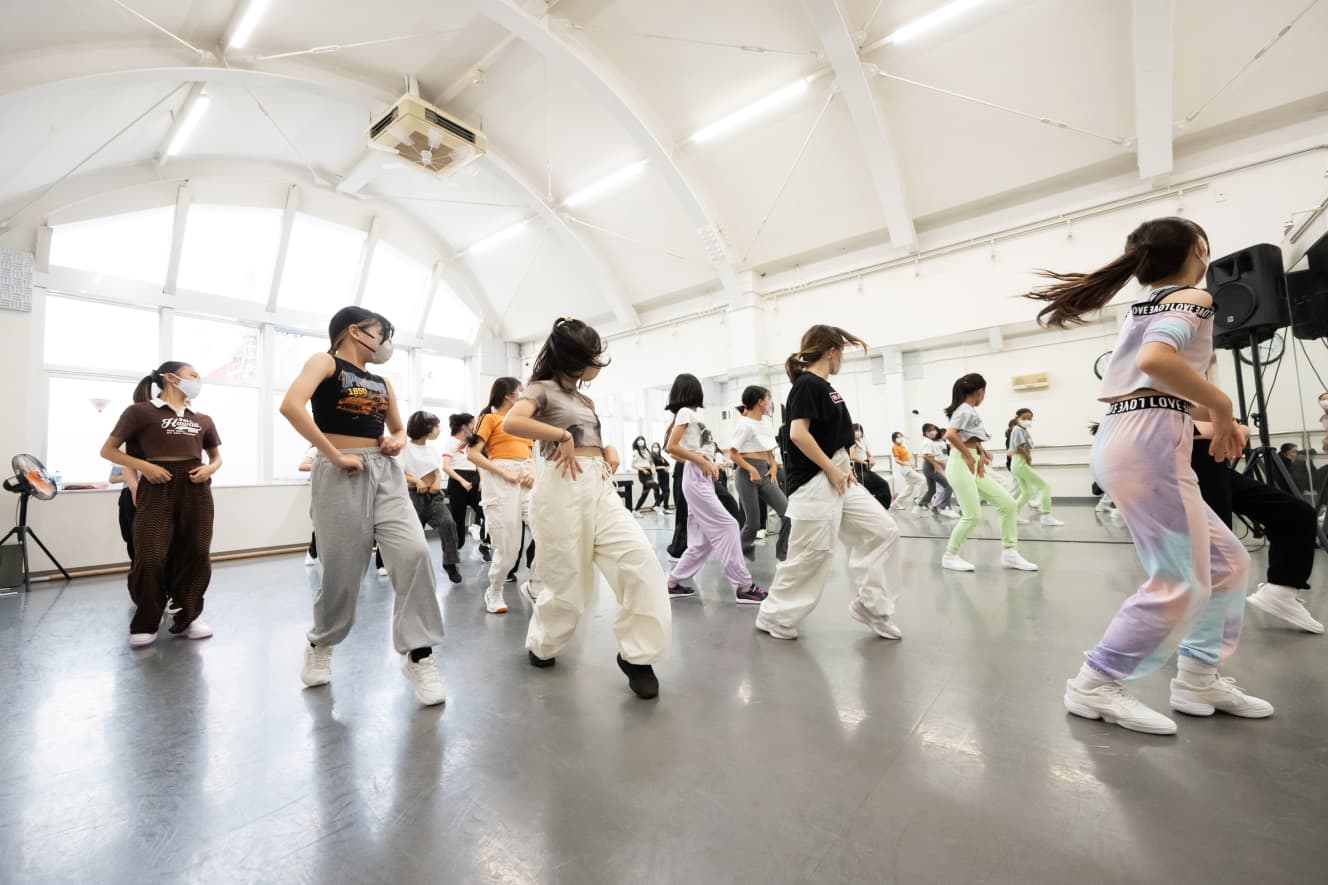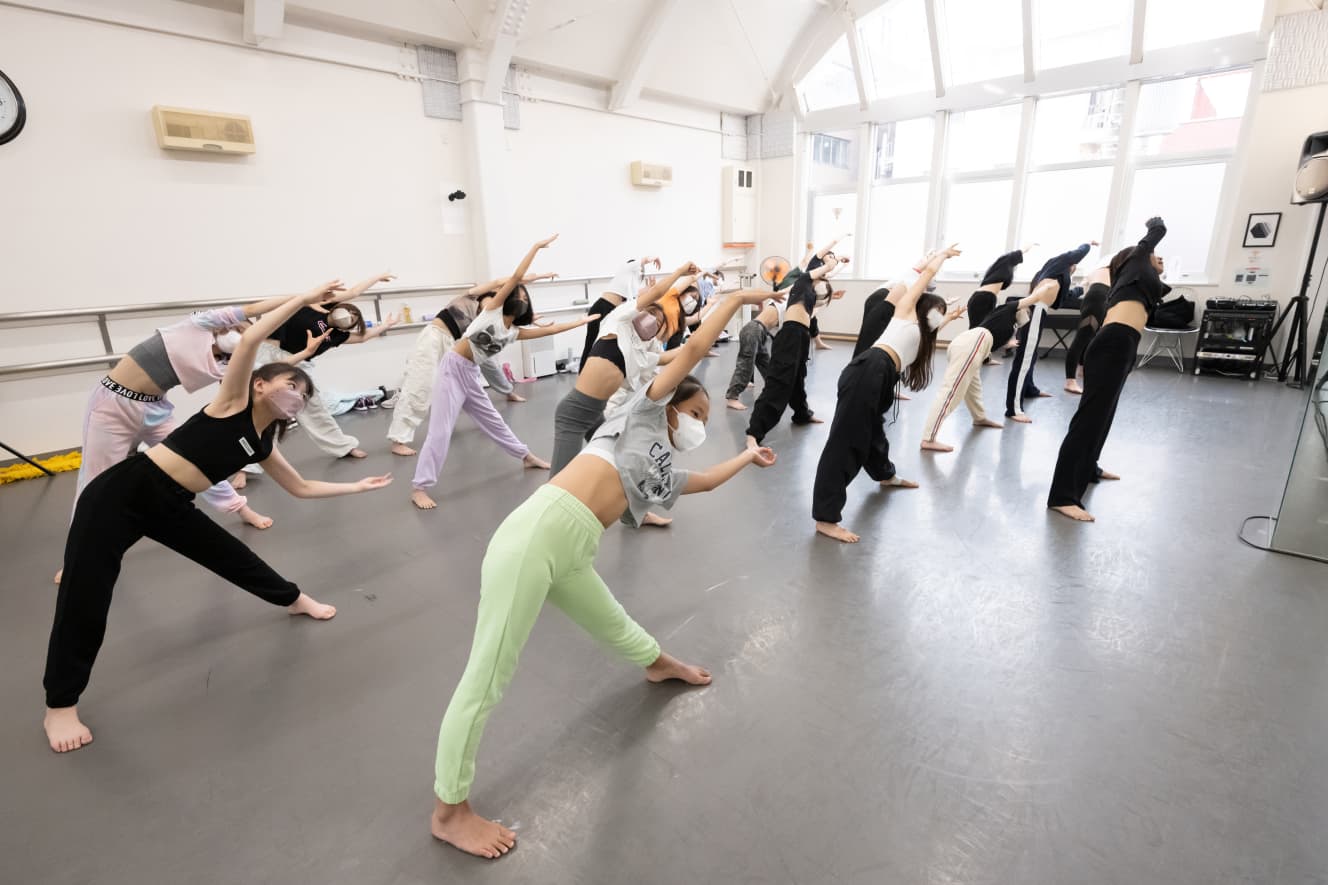It is common for junior high school students to go to Korea… The story behind the birth of many Japanese “K-Pop idols
“I was wondering if there were any promising talents from Korean entertainment agencies…”

In recent years, a number of Japanese K-pop idols have emerged in the K-pop world. Since the girl group TWICE, which includes three Japanese members, made its debut in Japan in 2005, the number of K-pop groups with Japanese members has been increasing.
In the K-pop world, where dance and singing are at a high level, the debut of a Japanese artist means that she or he auditioned for a Korean entertainment agency, became a trainee, went to Korea, and seized one of the few opportunities available to her.
The average trainee period is said to be 3 to 4 years, and the longest 7 to 8 years. For example, many Japanese K-pop idols, such as YUTA of NCT127 and Rei of IVE, came to Korea in their mid-teens and debuted after a long period as trainees. An increasing number of Japanese teenagers are yearning to become such Japanese K-pop idols and are seriously working hard in dance and singing lessons to become trainees.
K-Pop training schools” are increasing mainly in the Tokyo metropolitan area and Osaka.
In fact, since around 2005, “K-pop training schools” have been opening one after another in the Tokyo metropolitan area and Osaka, where students can learn the skills necessary to become K-pop idols. In addition to dance and singing lessons, the schools also provide instruction on how to audition and obtain recommendations for private auditions and scouting by Korean entertainment agencies, so it is said that entering these schools is a shortcut to becoming a trainee.


Dance Studio Cielo, located in Meguro, Tokyo, is Japan’s first dance school specializing in K-pop dance and opened in 2011 for those who want to learn K-pop dance, with dancers who have served as back-up dancers for K-pop idols as instructors, In 2009, the school opened a training class for those aiming to make their debut in Korea. Currently, the school has about 200 students ranging in age from 9 to 19. Thirty percent are elementary school students and 40% are junior high school students. Shingo Machida, the representative of the school, explains the reason for opening the training class.
As TWICE’s popularity grew, we were frequently approached by Korean entertainment agencies to see if we had any promising talent. We began to hear from many of our students that they wanted to debut in Korea and wanted to know how to pass the audition, so we decided to open a training class.


Cielo has sent 16 students to Korean entertainment agencies, many of them junior high school students. Most of them are junior high school students. The youngest was a sixth grader, and two boys went to Korea on their own when they graduated from elementary school.
Nowadays, junior high school students are becoming the main target,” said Mr. Kwon. This is especially true of the major entertainment agencies,” Machida says.
In Korea, K-pop idols are becoming younger and younger. For example, the youngest member of New Jeans, a girl group attracting worldwide attention, was only 14 years old when she debuted. All members debuted in their teens.
This trend toward younger idols has led the K-pop industry to seek out younger talent among Japanese trainees.
Most of the entertainment agencies are looking for auditions at the age of 9 or 10, or from the upper grades of elementary school. However, it is difficult to predict height and head height for those under 10 years old, even if they have good dancing and singing skills.
Therefore, we treat them as “follow-up” and follow them six months or a year later. Many auditioners are asked about the heights of their parents and siblings. In this sense, it can be said that the agencies respond well to children who are taller, taller in head, or more mature, even if they are under 10 years old.
Junior High School Students Aiming to Debut in Korea, Strong Determination to Go to Korea
Success is not guaranteed in this world. It must not be easy for a junior high school student to make the decision to leave her parents and live in a dormitory with her rivals in a strange place, but what kind of passion does a junior high school student have for her dream?


Ren Taniji (15 years old, junior high school junior) and Rian Masuda (13 years old, junior high school junior), both junior high school students in the training class, were introduced to K-POP when they were in elementary school, and their goal was to debut in Korea. When they were depressed or having a hard time, K-pop music helped them, so they decided that they wanted to use the power of K-pop music to encourage many people.
The two nodded their heads, knowing that the industry is tough and that only a handful of people can succeed in it.
I like new environments. I like new environments, and I’m willing to take on new challenges with a “yes! If I pass the audition, I am ready to go to Korea right now.
I am training hard now to be ready to accept any opportunity that comes my way. I am anxious about going to Korea and I am sad to be away from my friends, but I believe that I will have an experience that will be meaningful enough to transcend my anxiety and loneliness” (Masuda).
Mr. Machida recalls that when he set up the training class at Cielo, he actually had some hesitation.
We can help students pass auditions, but we are not responsible for the artist’s debut, as is the case with Japanese entertainment agencies. We were very concerned about whether or not we could take care of elementary and junior high school students in the prime of their adolescence and send them off to Korea.
Nevertheless, we decided to open the school because we could feel the children’s strong desire to debut, and we felt that teaching children who had the clear intention of becoming K-pop idols with the same curriculum as the hobby class would lack sincerity.

In contrast to Japan, the number of aspiring Korean idols is on the decline.
How do junior high school students who come to Korea manage their studies?
It depends on the school they are attending, “It depends on the school you are attending, but if you work well together, you can switch to a correspondence course while you are still enrolled in school. Of course, if you can speak Korean, you can transfer to a Korean school. If you can speak Korean, you can transfer to a Korean school. In some cases, you can take lessons in Korea during school holidays and submit assignments from Japan via online lessons during the school term.
I have also heard that if an entertainment agency has a Japanese branch office and studio in Japan, it is possible to “train in Japan” until your debut is decided. There are a variety of ways to balance schoolwork,” she said.
Machida says that once a student passes the audition, she discusses many issues with the parents in preparation for signing a contract with an agency, including academic issues, but when the time comes to go to Korea, some parents are not sure what to do. It is a decision that will affect their child’s future, so it is only natural.
However, parents of today’s elementary and junior high school students are also of the generation that was familiar with K-pop. Many parents wish to send their children to study abroad to develop their talents in sports and the arts. In a similar vein, more and more parents may be willing to allow their children to travel to Korea to make their debut in the country.
In contrast to Japan, the number of aspiring idols who dream of debuting in the K-pop industry is on the decline in South Korea. This may be due to the fact that there are many other ways to showcase one’s talent, such as becoming a YouTuber or an influencer, in addition to being an idol, which is becoming more and more familiar.
If this is the case, there is no doubt that the search for K-pop idol talent will become more active in Japan in the future. We look forward to cheering on these teenagers as they take on the challenge of realizing their dream of debuting in Korea.
Interview and text: Keiko Tsuji PHOTO: Ayumi Kagami